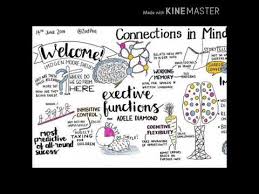Jews and Christians are under ethical, religious, and spiritual obligations to follow Biblical precepts. The Ten Commandments, known also as “the ten words” or as the Decalogue in Christianity, are principles to guide our behavior. The commandments, detailed in Exodus 20:1-17 from the King James Version, describe a relationship with God, e.g., “Thou shalt have no other gods before me; do not make unto thee any graven image; do not take the name of the Lord thy God in vain.” The remaining commandments describe specific actions that characterize exemplary behavior, e.g., “Thou shalt remember the sabbath; keep it holy; honor thy father and mother; do not murder, commit adultery, steal, bear false witness against thy neighbor, or covet thy neighbor’s house, wife, slaves, etc.”
In Christian theology, Jesus freed his followers from the obligation to follow the hundreds of commandments in Jewish religious law. He did not, however, remove the duty to keep the Ten Commandments. In Matthew 22:35–40, Mark 12:28–34, and Luke 10:27, Jesus acknowledges their validity. He then asks his disciples to go further, demanding a righteousness exceeding that in the Old Testament. When asked, “which is the great commandment in the law?” Jesus answered, “You shall love the Lord your God with all your heart and with all your soul and with all your mind. This is the great and first commandment. And a second is like it: You shall love your neighbor as yourself.”
Jesus considered these as similar precepts, for if we love God with all our heart, soul and mind, loving our neighbor is the natural consequence. For the Christian faithful, it is the core of their lifestyle and values. But why is it so difficult to live this reality? One cynical reason is that no sanction is associated with their lack of execution. Thus, individuals can call themselves Christian, not follow the commandments, and have no fear of their misbehavior. Even if they believe that punishment can only occur following earthly life, it is easy to ignore. The association is so far removed that it will not weigh very much on their conscience. My intuition is that these are not the “virtuous” people God is hoping to shape.
So, can people call themselves Christian if they cannot live up to these commandments? Yes, but it matters whether they try as opposed to having an uninterested and lackadaisical mindset about it. God gave many hints He wants his followers to make the effort. The most perfect expression of this expectation is Matthew 7:7, “Ask, and it will be given to you; seek, and you will find; knock, and it will be opened to you.” If we assume that those who see themselves as Christian do struggle, then what prevents them from complying? Let’s for now ignore the first part and focus on the latter part of the commandment.
First, God would not command “love your neighbor as yourself” if it were beyond the capacity of humans. Second, God is the source of Life. When the faithful love Him with all their heart, soul, mind and strength, they grow to recognize that everyone is part of His creation. My intuition is that most of the faithful know and exercise this understanding intentionally as well as unconsciously. They show it in the tithes they give, the charity work they do for their churches, and the individual volunteering seen across the world. But when they do not identify with others, it means there will be moments their actions dissociate from this ideal. What gets in the way? I argue it is the nature of human individuality in relation to unity.
This argument resembles that proposed by Martin Buber, an Austrian-born philosopher, who considered the distinction between I–Thou and I–It relation. In his analysis, Buber attempted to understand how human individuality fits into the universality of God. His reasoning followed that “I either understand myself as God or God as myself.” Neither of those, however, appeared to be correct or satisfactory. And thus, the need for a third alternative. Jesus, who became Christ, is a perfect and symbolic representation of this third relationship. Or what Buber characterized as “I am in God and God is in me” relationship. I keep my individuality as I recognize I am also part of the whole. Jesus as a human being is the embodiment of such an interactivity. Christ is the actuality that such consciousness is a possibility available to everyone.
As long as we see the world from an individual perspective, self-centered actions will prevail. When we perceive ourselves as embedded in the “I am in God and God is in me” relationship, then others become as important. And actions follow that perspective. This relationship thrives when fostered, learned, prayed for, and exercised. When that awareness becomes a natural response, then living up to the greatest commandment develops into a real and effortless life.
What can be done to make this awareness a natural response? Make the following exercises a part of an everyday routine. This will promote learning to “love your neighbor as yourself” and set up an “I am in God and God is in me” relationship:
- See God in others (If we love one another, God remains in us)
- Love yourself (Fifteen self-love tips)
- Carry out random acts of kindness (Why RAKs matter?)
- Help those in need (Twenty-five ways to help)
For more thoughts on this issue, check this blog for future essays.



